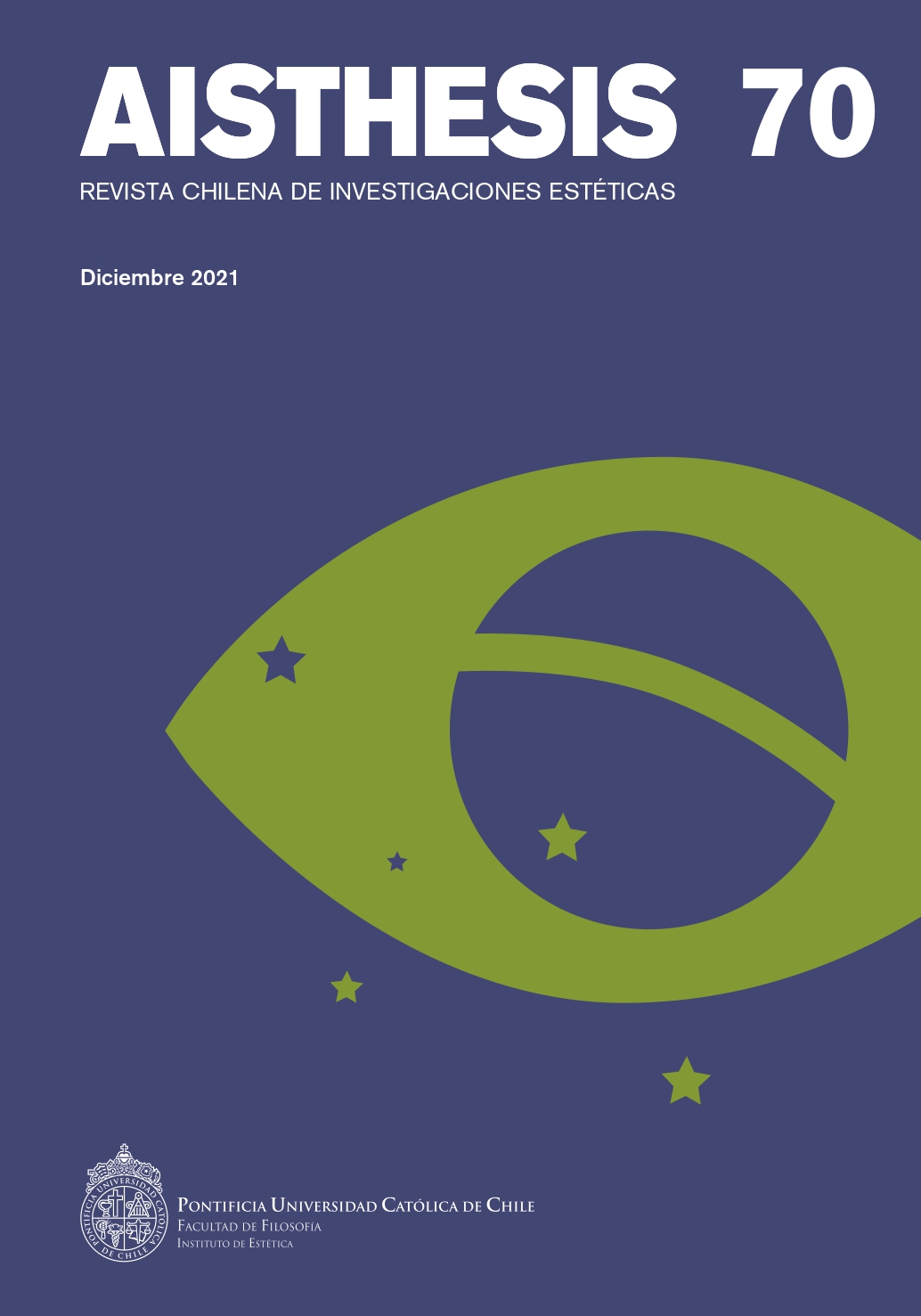Sexuality, gender and power in Yo, la peor de todas (1990) by Maríia Luisa Bemberg
Main Article Content
Abstract
This article presents a review of the work of María Luisa Bemberg with a focus on the film Yo, la peor de todas (1990). With the semiotic and aesthetic analysis of the visual, sound and symbolic elements of the film, it seeks to show the tensions it produced regarding sexuality and gender, as well as the power and historical processes of its present. Rather than being an article driven by a single guiding hypothesis, it seeks to explore the proliferation of meanings of the work. In this way, the figures of reclusion, the desire between women and the disease are the approaches that are applied to perceive a cinema in which the historical conditions of women emerge.
Downloads
Article Details

This work is licensed under a Creative Commons Attribution-NonCommercial-ShareAlike 4.0 International License.
All contents of this electronic edition are distributed under the Creative Commons license of "Attribución-shareAlike 4.0 Internacional" (CC-BY-SA). Any total or partial reproduction of the material must mention its origin.
The rights of academic works published in this publication belong to their authors., who grant to AISTHESIS: Revista Chilena de Investigaciones Estéticas the license for its use. The management of the permits and the authorization of the publication of the images (or of any material) that contains copyright and its consequent rights of reproduction in this publication is the sole responsibility of the authors of the articles
References
De Grandis, Rita. “Introducción: María Luisa Bemberg o las trampas de la clase”. Revista Canadiense de Estudios Hispánicos, vol. XXVII, nº 1, otoño, 2002, pp. 3-14.
Deleuze, Gilles. La imagen tiempo. Estudios sobre cine 2. Buenos Aires, Paidós, 1987.
España, Claudio. Cine Argentino en democracia. Buenos Aires, Fondo Nacional de las Artes, 1994.
Fontana, Clara. María Luisa Bemberg. Buenos Aires, Centro Editor de América Latina, 1993.
Fornicito, Ana. “Óyeme con los ojos. Miradas y voces en el cine de María Luisa Bemberg”. Tránsitos de la mirada. Mujeres que hacen cine, Eds. Paulina Bettendorff y Agustina Pérez Rial. Buenos Aires, Libraria, 2014.
Fuskova, Ilse. Amor de mujeres. El lesbianismo en la Argentina, hoy. Buenos Aires, Planeta, 1994.
Getino, Octavio. “Cine en democracia (1983-1989)”. Cine argentino entre lo posible y lo deseable. Buenos Aires, Ediciones Ciccus, 2005.
Kratje, Julia. “El cine como transgresión. Deseo, política y feminismo en Camila (María Luisa Bemberg, 1984)”. La Trama de la Comunicación, vol. 21, n° 1. Rosario, UNR Editora, enero a junio, pp. 29-43.
Ludmer, Josefina. “Tretas del débil”. En González, Patricia y Eliana Ortega. La sartén por el mango; Encuentro de escritoras latinoamericanas. Puerto Rico, Huracán, 1984.
Rich, Ruby. New Queer Cinema. The Director’s Cut. Londres, Duke University Press, 2013.
Rodríguez, Omar A. “Poder, institución y género en Yo, la peor de todas”. Revista Canadiense de Estudios Hispánicos, vol. XXVII, n° 1, otoño, 2000.
Rosa, María Laura. “La necesidad de filmar: María Luisa Bemberg en los inicios del arte feminista”. Legados de libertad. El arte feminista en la efervescencia democrática. Buenos Aires, Biblos, 2014.
Salas, Hugo. “Señoras o enanas. Las diferencias de María Luisa Bemberg”. En Melo, Adrián (comp.), Otras historias de amor. Gays, lesbianas y travestis en el cine argentino. Buenos Aires, Ediciones Lea, 2008.
Sarabia, Rosa, “Sor Juana o las trampas de la restitución”. Revista Canadiense de Estudios Hispánicos, vol. XXVII, n° 1, otoño, 2002.
Wittig, Monique. El pensamiento heterosexual y otros ensayos. Barcelona, Egales, 2006.
